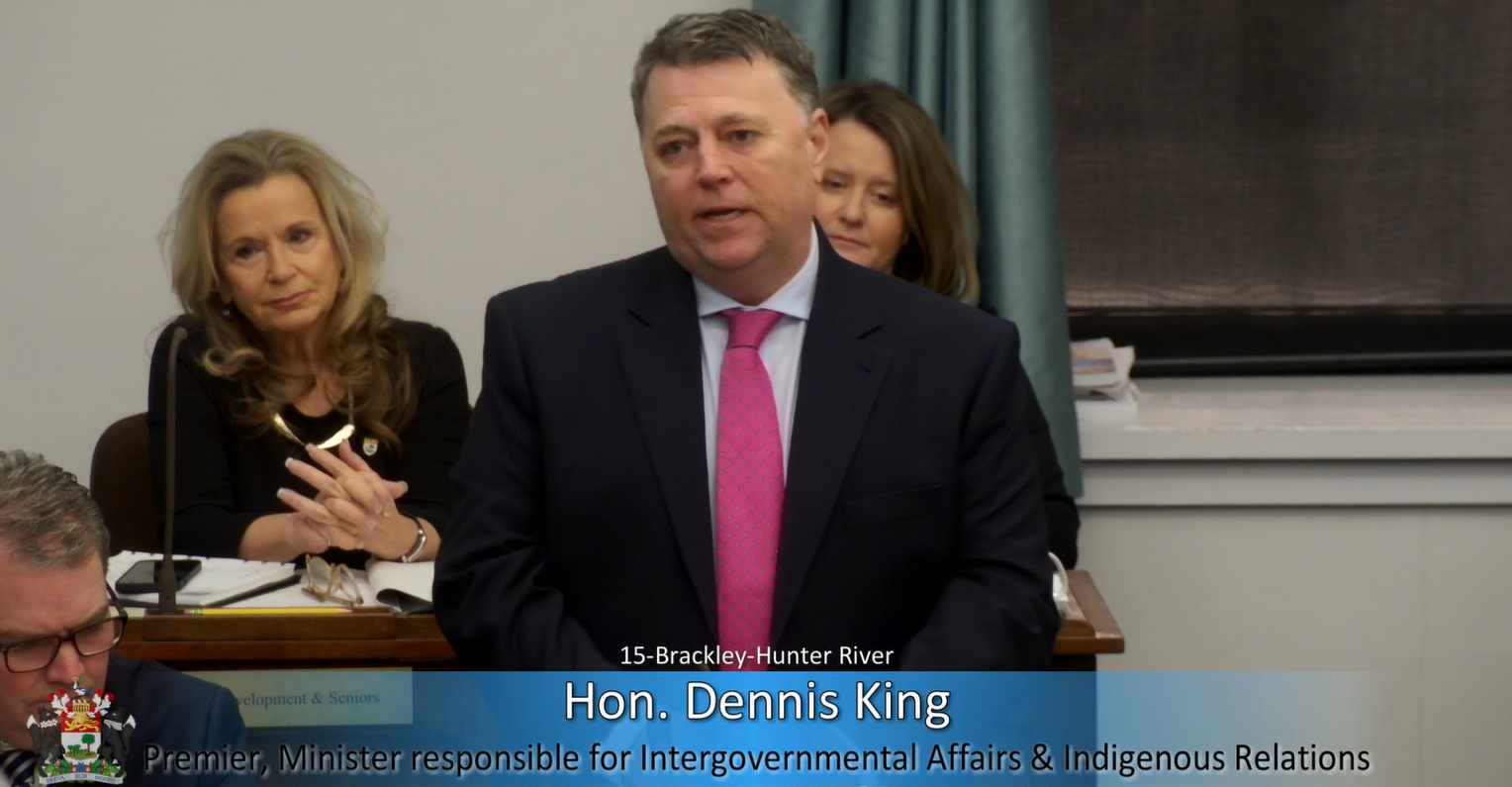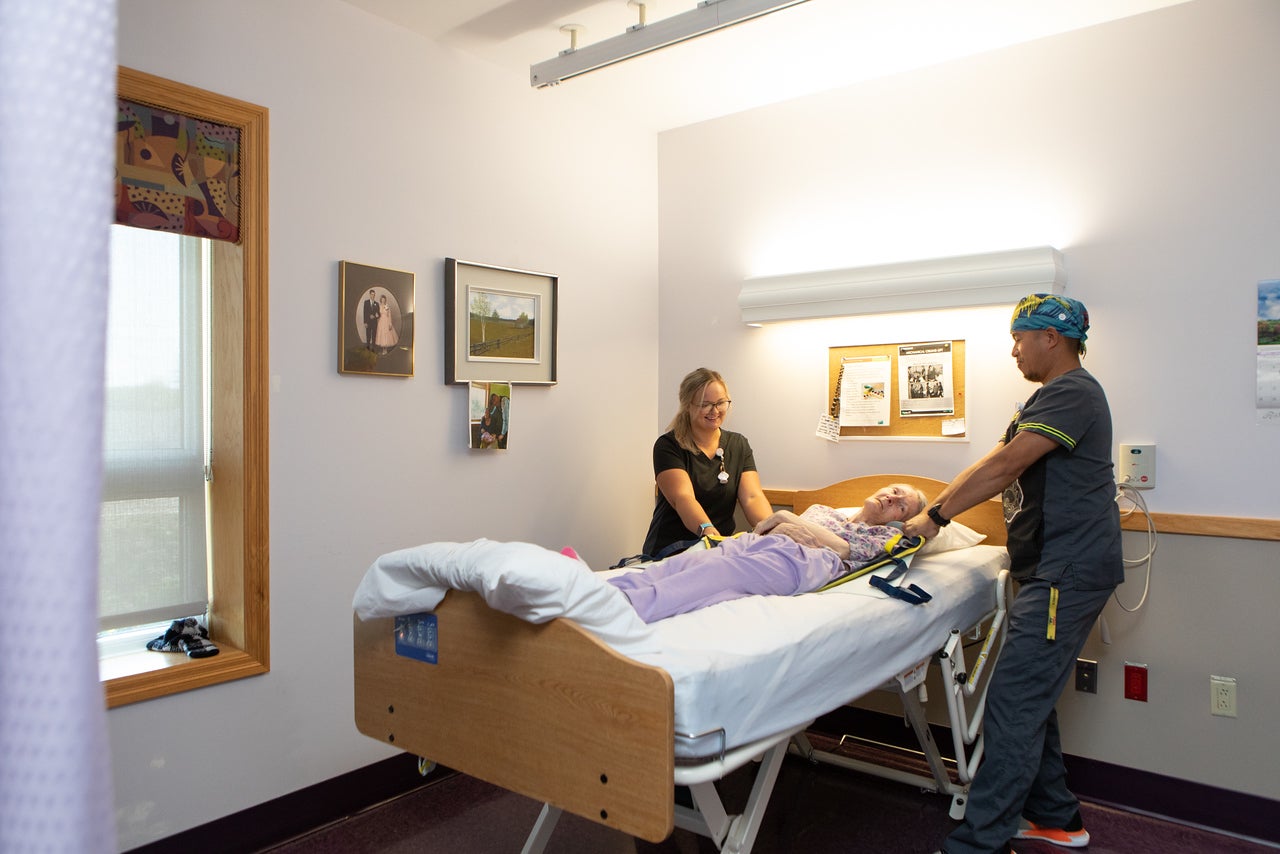

When contract negotiations broke down between CUPE health care support workers and Health PEI on April 10, union reps and workers voiced their frustration outside the PEI legislature and have since started a petition.
“The CUPE Health Negotiation Team created the petition to bring awareness to the PEI government through signatures of support for CUPE Support Service Workers,” said Local 1779 president Chris Lewis.
“Workers are struggling to maintain the basic necessities of life. Many hold second jobs to make ends meet, or work short in areas, causing workload stresses to workers and their families. We are really just trying to send government the message that the public stands behind what we are fighting for.” It is not a new message to government, Mr Lewis said, the four CUPE Health Locals 805, 1051, 1778 and 1779, representing 1,300 workers, met with Premier Dennis King and Health Minister Mark McLane in June 2023.
At the time the politicians told union reps their concerns over low wages would be addressed at the bargaining table. That didn’t happen, Mr Lewis said. “The offer wasn’t enough to address inflation for our workers,” he added.
The locals represent workers in laundry, dietary, maintenance, maintenance trades and housekeeping roles. Also under the umbrella are ward clerks and sterile technicians. They work in public long-term care homes, hospitals, addiction treatment centres and public health offices. “Everyone is important within a facility,” he said. “The majority of our workers are the lowest paid in the system.”
There is no official count of signatures as yet. Mr Lewis said the four locals have been circulating the petition across the province. “Anyone approached has been quite supportive,” he said. Mr Lewis has worked maintenance at Kings County Memorial Hospital for 24 years and has seen the issues of the wage gap and burnout a few years prior to the pandemic.
He said the fact that wage hikes are doled out in percentages puts things on an uneven keel.“After awhile the higher earners will get ahead a little more, and the ones making the least amount don’t make many gains,” he said. When people can’t make ends meet they have to move on to survive.“There are a lot of vacancies and people leaving the system, especially in our groups because a lot of people are finding it tough,” he said. This makes things hard for those still in the workforce.
“People are working overtime just to keep things going, and people get tired. It hurts a lot of things like your family life and your own health too if you get a little burnt out,” Mr Lewis said. It has been over a month since that gathering at the legislature where the premier said they wanted to get back to the table, but nothing has changed.
Currently they are in conciliation with Health PEI which means both sides communicate through an independent moderator. The premier’s office, the Department of Health and Wellness and Health PEI didn’t respond to questions by press time. The collective agreement the two sides are bargaining was due to be updated in March of 2023.
In Dec 2023, CUPE PEI made a pre-budget submission to the Government of PEI with our input on what we wanted to see in the 2024-2025 Operating Budget.
Our 5 overall recommendations were: – Increase the real wages of workers who provide public services – Implement new childcare spaces that are publicly-owned and operated – Address the housing shortage and make housing a human right – Expand pilot project of the Targeted Basic Income Guarantee (T-BIG) – Make new investments in public servicesCheck out the link to the PDF below to see what we asked for in our pre-budget submission and our thoughts on what we see reflected in the actual budget document.


Charlottetown, PEI – Ashley Clark, President of the Canadian Union of Public Employees (CUPE) PEI Division, today expressed disappointment with the PEI Government’s 2024-25 operating budget announcement, stating that it falls short of addressing critical needs within the public sector.
“While the PEI Government’s budget highlights investments in healthcare, housing, and affordability, it simply does not go far enough to address the pressing concerns faced by our frontline workers and residents,” stated Ashley Clark. “Premier Dennis King’s administration continues to overlook the essential needs of our healthcare system and fails to adequately support our valued public sector employees.”
Clark pointed out that despite allocations for healthcare improvements, the budget fails to address the underlying issues contributing to staff shortages, wage disparities, and resource deficiencies within the healthcare sector. “Allocating funds for additional patient medical homes and doctor recruitment is commendable, but without addressing fundamental issues such as bringing long-term care (LTC) workers to the public sector, these measures remain insufficient,” she emphasized. CUPE PEI notes that private sector wages would not need to reach parity with healthcare if PEI embraced LTC as a public service. “Healthcare wages are too low, and that is much worse in private LTC,” said Clark.
Furthermore, Clark criticized the budget for its lack of substantial measures to improve relations with frontline workers. “Premier Dennis King needs to recognize the importance of building better relationships with our frontline workers, who have been tirelessly serving our communities, and that is not reflected at all in our bargaining talks with the province,” Clark asserted. “Improving public services requires serious financial investments and it requires genuine collaboration and respect for public sector employees.”
CUPE PEI urged the PEI Government to prioritize meaningful dialogue with public sector unions and workers to address their concerns effectively. “We call on Premier Dennis King and his government to engage in constructive dialogue with CUPE Locals to develop comprehensive solutions that prioritize the well-being of our workers and the residents they serve,” Clark concluded.
The Canadian Union of Public Employees (CUPE) PEI represents over 3400 members across various sectors, including healthcare, education, municipalities, post-secondary education, long-term care, and more.

Click the link for more information
Click the link below!

It’s been busy on our Island! Since being elected your Division President in May, I have been connecting with individuals and organizations, learning the (many) ropes, and working hard to represent Island worker interests with government, in the media, and at the CUPE National Executive Board. I want to say a HUGE thank you to all the CUPE locals, councils, and the CUPE PEI Board – as well as the CUPE Regional Director and entire Maritime Region Staff team – all of whom bring their knowledge, experience, and enthusiasm to every issue we work on together!
One thing that has become crystal clear is that we are facing a dearth of leadership inthis province. From a municipal councilor denying the realities of residential schools and a provincial MLA making sexist comments about women paramedics to the toxic administration and culture at UPEI and the Premier’s divisive recruitment and retention strategy, we have seen people in positions of power directly harm and disrespect the people living and working in this province. Add to this reality the fact that inflation on PEI has skyrocketed; the cost of food, rent, and other essentials is out-of-control; and wages aren’t keeping up with inflation, the struggles and anxiety many people are facing today just to get by are real and understandable. In facing these difficulties, what inspires and motivates me is the incredible bravery and
solidarity I have seen from workers here on PEI and across the country. People are getting fed up with the status quo that advantages corporations over communities, and they are turning those frustrations into action. At our 60 th anniversary CUPE National Convention, we heard about strikes and job action across the country, where workers are standing up to their employers and they are winning – achieving better for their bargaining units, which means better for everyone! There are structural challenges that we have to face in our fight for fairness — indifferent, incompetent, or uncaring governments at every level; legislation that restricts our chartered rights and freedoms (or laws that don’t protect us from being exploited and unfairly treated); not to mention chronic underfunding of important social services.
Over the last few months, I have been meeting with Local Presidents, attending Local meetings and AGMs, and working with Regional and National staff to map out our plans to address those challenges head-on. I am so excited by the passion I am hearing from members across the province and the determination from Local leadership to fight for better for everyone. Island workers are tired of begging for scraps and are done waiting nicely for the government and employers to dictate when and how they want to deal with the Union. I am very proud to
represent CUPE workers on PEI and am excited to tackle the year ahead together!

CUPE Local 2523, representing close to 200 Atlantic Baptist Nursing Home workers, along with CUPE PEI, issues a statement regarding the recently published Long-Term Care (LTC) review. While the review acknowledges inequities and calls for improvements in the private sector, it falls short of addressing the fundamental issues faced by LTC residents and workers.
The report emphasizes aligning qualifications, recruitment, retention, and financial aspects but lacks a comprehensive plan for improving LTC conditions. “Simply aligning an underfunded public sector with an even worse private sector does not provide the visionary change needed in LTC,” said CUPE Servicing Representative Lori Mackay.
“Many of the review’s recommendations merely suggest further investigation into known issues, delaying crucial action,” added Mackay. CUPE Local 2523, the PEI Health Council, and CUPE PEI initially presented recommendations in October 2022 advocating for higher-quality care, increased staffing, improved data, wage and working conditions improvements, and clear pandemic plans.
CUPE highlights the following elements, among many others, which were brought forth by care workers but inexplicably absent from the review:
Real progress in LTC requires a more comprehensive approach, which really recognizes the importance of those who deliver care to residents. “CUPE PEI calls on the provincial government to do the right thing and make our long-term care service a real publicly-owned and operated healthcare service. All residents and workers in this sector deserve the same standard of safety, dignity, and quality of care,” concluded Ashley Clark, President of CUPE PEI.